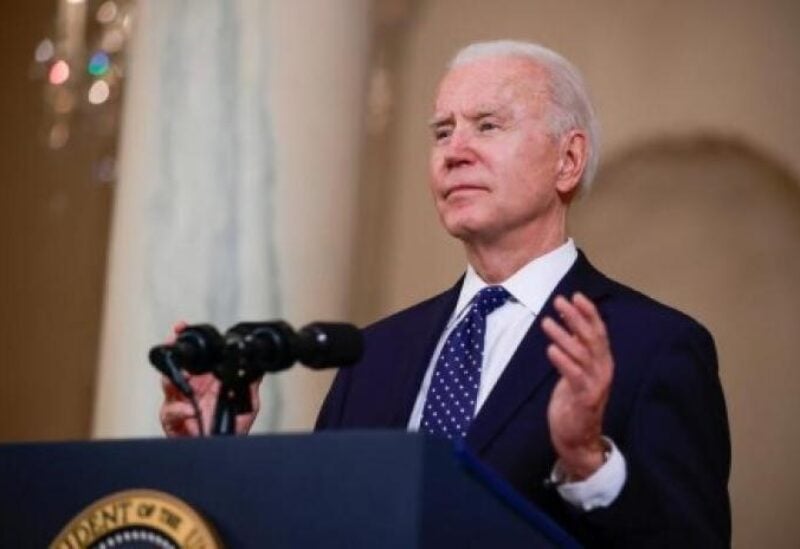
U.S. President Joe Biden
During his first European trip in 2017, US President Donald Trump startled Washington’s Western allies by lecturing them for not paying their “fair share” of defense spending, physically shoving one prime minister aside, and publicly white-knuckling another leader.
Joe Biden’s words of camaraderie and assurance that “America is back” as he meets Western allies this week and next are a welcome respite after four rocky years for the transatlantic alliance under Donald Trump.
Diplomats and foreign policy specialists, however, argue that they are insufficient.
Biden faces lingering doubts about America’s reliability as a partner. Leaders from the Group of Seven advanced economies, NATO and the European Union are worried about the pendulum of U.S. politics swinging yet again, and are looking for concrete action, not words after the shock of the Trump years.
“Is this a an interregnum between Trump 1.0 and Trump 2.0? Nobody knows,” said David O’Sullivan, a former European Union ambassador to Washington. “I think most people are of the view that we should seize the opportunity with this administration to strengthen the relationship and hope that this can survive beyond the midterms and 2024.”
European leaders have been upbeat publicly, hailing the survival of multilateralism – but their doubts go beyond the scarring of the Trump years. The Biden administration’s foreign policy has been sending mixed signals, marked by some missteps and uncertainty over key policy areas such as China, thanks to lengthy reviews, former U.S. officials and diplomatic sources said.
“America’s partners are still reeling from what happened under Trump,” said Harry Broadman, a former senior U.S. official and managing director at Berkeley Research Group. “But some of Biden’s messaging has also been disjointed.”
FOREIGN POLICY FOR THE MIDDLE CLASS
Just a handful of concrete international policies have emerged almost five months since taking office, while Biden’s decisions to push for ‘Buy America’ provisions, back a waiver of intellectual property rights at the World Trade Organization with little consultation with other members, and set an aggressive schedule for withdrawal from Afghanistan have unnerved allies.
Biden stated that all US forces would leave Afghanistan by September 11, the 20th anniversary of the start of America’s longest conflict. Officials from the United States have stated that the pullout will be completed before then.
Several Western diplomats said the timeframe caused friends to scramble to catch up, and that the move was intended for home consumption.
Both Biden and his senior diplomat, Secretary of State Antony Blinken, have stated that the United States’ foreign policy should assist the middle class first and foremost.
That sounds like a euphemism for Trump’s isolationist “America First” motto to many European governments. “America first will undoubtedly stay,” a western diplomatic source said.
A LESS DEMOCRATIC AMERICA?
Many observers believe that a major underlying concern for many foreign allies is a fundamental one: their faith in American democracy has been damaged.
Trump has been making bogus claims about winning the Nov. 3 election for months, and on Jan. 6 he encouraged followers to march to the US Capitol when Congress were recognizing Biden’s victory.
The riot, which resulted in the building’s evacuation and the deaths of five people, astonished international leaders.
Jamie Shea, a former senior NATO official who now works at the Brussels-based Friends of Europe think tank, told Reuters that he is concerned that the next US president may follow in Trump’s footsteps.
“So I believe that we have four years,” he said, “we have a limited period of time with this pro-European administration, to cement a solid transatlantic economic and security partnership.”
Biden’s Democratic Party operates on a razor-thin majority in the U.S. Congress, making it difficult to pass legislation and reset international goals. The Republican party has coalesced around opposing his agenda.
G7 Finance Ministers agreed to U.S. Treasury Secretary Janet Yellen’s plan to pursue a worldwide minimum tax rate of at least 15% and empower countries to tax approximately 100 major, high-profit corporations in a historic agreement. The proposal was quickly rejected by top Senate Republicans.
“It just goes to demonstrate how difficult it is to get anything done in such a divided Congress,” one diplomatic source said.
A Pew Research Center survey released Thursday indicated that while people in 12 European and Asian countries still regard the United States as a “somewhat reliable” partner, few believe that American democracy in its current shape is presenting a good example of democratic values.